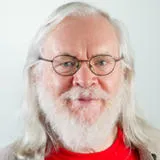11 May 2022
King's Physicist Dr Bobby Acharya has worked tirelessly to promote physics in African countries
Professor Bobby Acharya from the Department of Physics has been internationally recognised for his work promoting physics worldwide.
Bobby has worked over many years to build local capacity, address the gender gap in physics education and research, and improve the representation in physics especially in sub-Saharan Africa. He was a co founder of the African School of Fundamental Physics and Applications (ASP) which has trained over 300 qualified African physicists from approximately 30 different African countries). He works closely with Professor John Ellis in developing curricula and mentorship. Bobby’s research spans a range of expertise in many areas of high energy physics, extending from string theory to theoretical and experimental particle physics.
In developing countries, which are generally lagging in science, technology and education compared to developed countries, increased representation can lead to significant advancements in fundamental research. Women also tend to be under-represented in science to an even greater extent in developing countries. Bobby’s work has led to increased representation in areas of physics across these countries, especially in bringing gender parity and increased representation in the field of tertiary education, specifically in sub-Saharan Africa.
In 2018, through the award of the prestigious Lawrence Bragg Gold Medal and Prize by the Institute of Physics, Bobby was internationally recognised for his “contributions as the driver of several projects to teach and promote physics in the developing world, with the ultimate aim of developing sustainable physics research in those countries”.
Participants have gone on to pursue further research and opportunities. Former ASP students surveyed in 2020 said that they had used the knowledge and experiences from ASP schools to gain employment in, for example, technology companies; to deploy effective teaching methods when they had subsequently gone on to teach; and to boost career opportunities in the field of physics. 89% of respondents were studying or working in the education sector, with more than 50% having moved on to a different institution. Many respondents testified that ASP provided knowledge, information, and/or networking opportunities that directly led to them obtaining new positions in universities or other STEM-related positions in both Africa and other countries outside of Africa. This includes eight PhD students, four MSc students, nine lecturers, and two postdocs. Some reported working in tech companies, including one as a data scientist and another as an AI resident at Google Brain.
Bobby has also made significant contributions to physics curriculum development in Palestine and Afghanistan, substantially increasing Palestinian participation in CERN (also known as the European Laboratory for Particle Physics).


